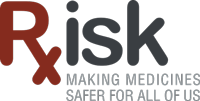Disordered: Anxiety Help
Disordered is the podcast that delivers real, evidence-based, actionable talk about anxiety and anxiety and anxiety recovery in a kind, compassionate, community-oriented environment.
Josh Fletcher is a qualified psychotherapist in the UK. Drew Linsalata is a graduate student and therapist-in-training in the US. They're both bestselling authors in the anxiety and mental health space.
Josh and Drew are funny, friendly, and they have a knack for combining lived experience, formal training, and professional experience in an encouraging, inspiring, and compassionate mental health message.
https://www.disordered.fm/ Our Most Popular Episodes
These are the episodes that seem to get the most love from the community. Check 'em out!
May 19, 2023
Anxiety Recovery: The Attitude Shift (Episode 10)
This week on Disordered, Josh and Drew talk about the all-important attitude shift that has to happen as part of recovery from an anxiety disorder. Recovery is spearheaded by behavioral change but that behavioral change also ...
May 26, 2023
Intrusive Thoughts ... Just Thoughts? (Episode 11)
This week on Disordered, Josh and Drew discuss scary, unwanted, recurring, intrusive thoughts that can frighten us and trigger high levels of anxiety and discomfort. The guys talk about the many different themes that intrusiv...
July 7, 2023
Health Anxiety (Episode 017)
This week on Disordered, Drew and Josh tackle the topic of health anxiety. Health anxiety is an obsession with one's physical or mental health that drives a continuous series of compulsions designed to soothe the fear, uncert...
Some recent excellent podcasts:
Anxiety Questions From The Listeners (Episode 037)
Nov. 24, 2023
ANXIETY QUESTIONS FROM OUR LISTENERS This week Josh and Drew are answering questions sent in by the listeners. The community around this podcast is amazing! Your feedback, questions, and “did it anyway” stories are a bit pa…
Anxiety And Brain Fog (Episode 036)
Nov. 17, 2023
BRAIN FOG!?!?! One of the most common symptoms of anxiety reported in the community surrounding this podcast is "brain fog". That thing where your brain just isn't working the way you'd expect it to work. Maybe you're slow, …
Anxiety And The Fear of Losing Control (Episode 035)
Nov. 10, 2023
Fear of losing control - and suffering some horrible consequence - is one of the top five core fears found in anxiety disorders. This week Drew and Josh delve into the fear that you may lose control and why this fear seems i…
Anxiety Recovery: Is Distraction A Good Plan?
This week on Disordered Josh and Drew tackle the topic of distraction. Trying to find ways to distract yourself when anxious is a common and popular strategy, but is it a good strategy? The answer is no ... and yes!
In this episode, we look at how distraction is almost always going to be part of the equation no matter what we do, why intent matters, and how using distraction as a way to focus on something other than how you feel teaches us important recovery lessons.
Bonus: Listen to Josh and Drew do an epic role-play where Josh plays the triggered amygdala and Drew plays the wise mind guiding us through acknowledgment and intentional focus. Distraction ... used in a positive way!
https://www.disordered.fm/anxiety-act-and-the-happiness-trap-w-dr-russ-harris-episode-88/
https://www.disordered.fm/anxiety-recovery-how-important-is-attention-episode-89/































